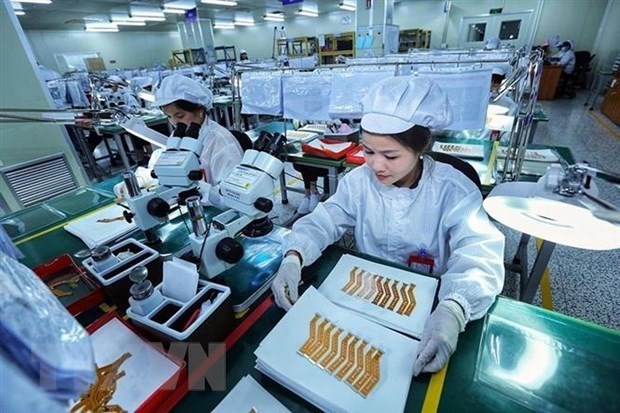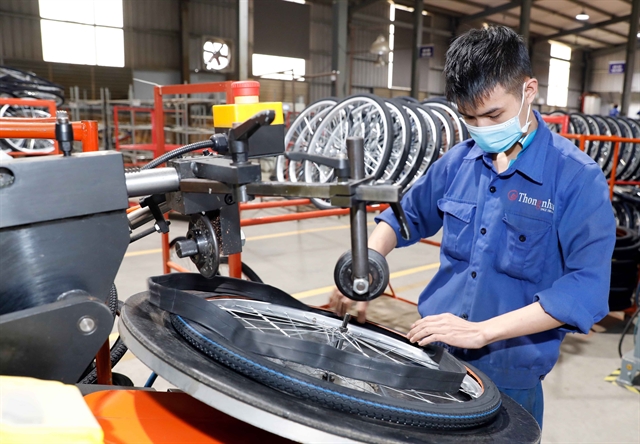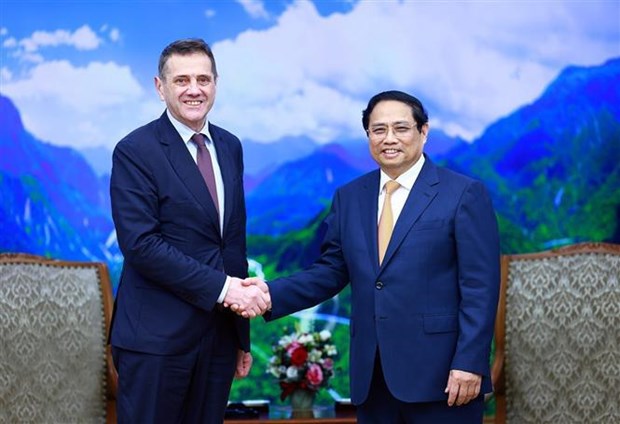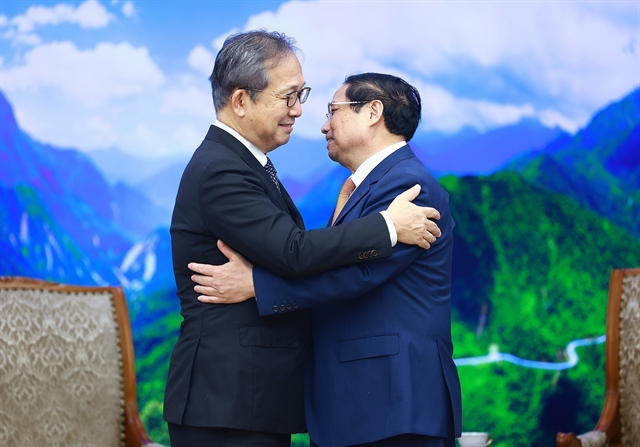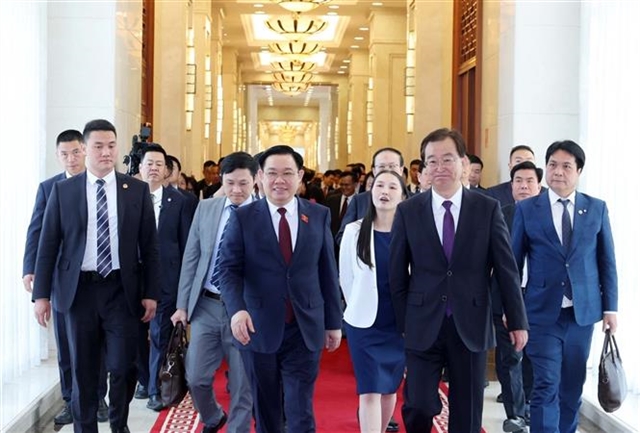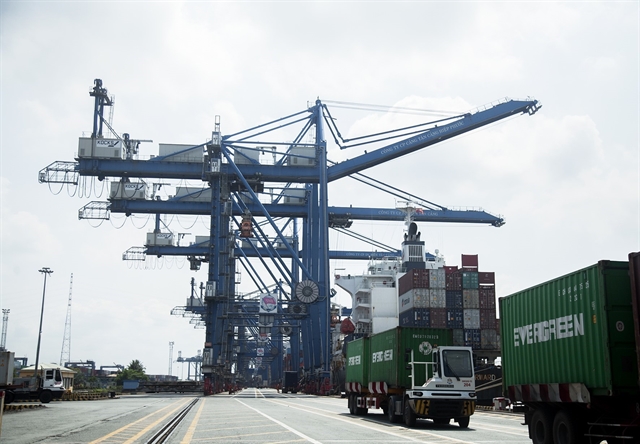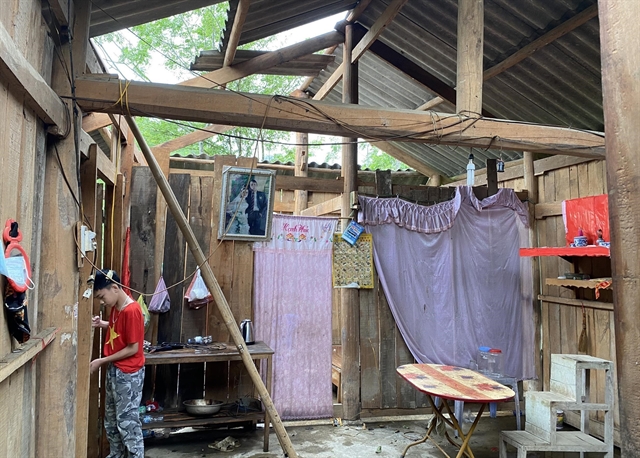 Society
Society

APEC-member economies agreed to continue enhancing regional cooperation to achieve the Bogor Goals of freer and open trade by 2020 in the Asia-Pacific region, an official said at a press conference held on Wednesday in HCM City.
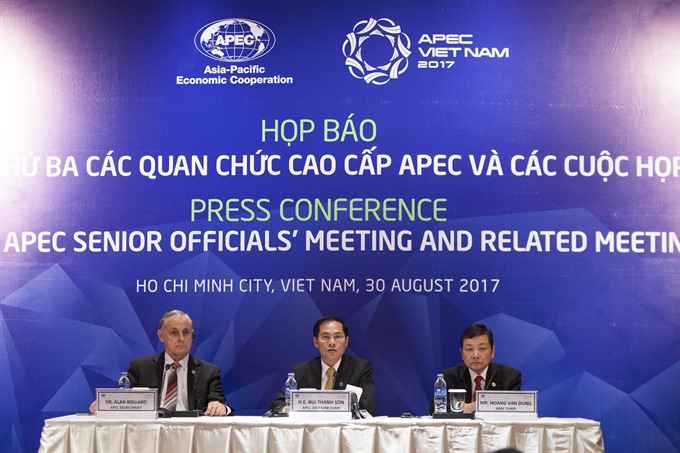 |
| Deputy Foreign Minister Bùi Thanh Sơn (centre) speaks at a press conference held at the closing of the third Senior Officials Meeting (SOM 3) of the Asia-Pacific Economic Co-operation (APEC) forum in HCM City on Wednesday. — VNS Photo Bồ Xuân Hiệp |
HCM CITY — APEC-member economies agreed to continue enhancing regional cooperation to achieve the Bogor Goals of freer and open trade by 2020 in the Asia-Pacific region, an official said at a press conference held on Wednesday in HCM City.
The press conference was held to conclude the third Senior Officials Meeting (SOM3) of the Asia-Pacific Economic Co-operation (APEC) forum held in the city from August 18-30.
Speaking at the meeting, Deputy Foreign Minister Bùi Thanh Sơn, the APEC 2017 SOM chair, said: “In the context of concerns about the unequal distribution of the benefits of globalisation and trade liberalisation, APEC members have affirmed their determination to continue bringing APEC cooperation into practical benefits for each economy, community and business.”
SOM3 aims to continue promoting the completion of the Bogor Goals of free and open trade and investment in the region by 2020, he said.
“Participants reached a consensus that the implementation of Bogor Goals must be associated with creating equal opportunities for every citizen and enterprise to contribute to, and benefit from, achievements of regional economic growth and linkage, and to contribute to global efforts for sustainable development,” he added.
“In parallel, APEC needs to enhance response capability and creativity in the context of the rapidly developing fourth industrial revolution,” he added.
During the two-day SOM3 meeting, APEC senior officials discussed major issues in the fields of healthcare, micro-, small- and medium-sized enterprises, food security and sustainable agriculture, e-commerce facilitation and the internet-based economy, among others.
Senior officials have adopted three guiding documents for cooperation, including the e-commerce facilitation framework, support industry initiative document, and APEC Supply Chain Connectivity Framework Action Plan.
Delegates agreed to report these findings to the APEC Economic Leaders Meeting to be held in Đà Nẵng in November.
In addition, Việt Nam reported on outcomes of the High-level Policy Dialogue on Sustainable Tourism, the High-level Meeting on Health and the Economy, and the High-level Policy Dialogue on Food and Security and Sustainable Agriculture in Response to Climate Change.
Việt Nam also reported the outcomes of the Symposium on Advancing Inclusion in the APEC Region and updated the proposed APEC Action Agenda on Promoting Economic, Financial and Social Inclusion in the APEC region.
The country updated preparations for the Small and Medium Enterprises (SME) Ministerial Meeting, and the Women and the Economy Forum.
Sơn said the Food Security Week in Cần Thơ produced important results with three key documents being adopted: Cần Thơ Statement; action plans on food security; and rural-urban development.
In addition, the High-level Meeting on Health and the Economy, attended by health ministers, sought ways to improve patient-first investment and build capacity for healthcare financing and access in the region with an aim to ensure a healthy and productive workforce, he said.
During the meeting, SOM3 discussed the recent development of Regional Trade Agreements and Free Trade Agreements (RTAs/FTAs) and the SOM Dialogue on RTAs/FTAs, according to Sơn.
It also discussed the implementation of Lima Declaration on Free Trade Agreement in the Asia-Pacific Region (FTAAP), as well as the next steps to develop the APEC Post-2020 Vision, including the possibility of a leaders’ statement on APEC Toward 2020 and Beyond, Sơn said.
“With only three months to go for the APEC Economic Leaders’ Meeting in Đà Nẵng, Việt Nam is ready for everything to ensure a successful APEC year,” Sơn said.
Speaking at the press conference, executive director of the APEC Secretariat, Dr Alan Bollard, praised Việt Nam for organising the APEC this year professionally.
“Việt Nam, which has a big role in hosting the APEC this year, has chaired the meeting very professionally, considering how many delegates participating in the event and how many events it has hosted so far,” he said.
“It’s quite a skill to get agreement from different economies, big and small, market and less market, developing and developed economies. And that has been done very well as well,” he said.
“Việt Nam has been pooling some ideas from other economies about other initiatives, some of which will be announced in Đà Nẵng by the leaders,” he said.
“We notice some trade tension, but we definitely are focused on Bogor Goals to achieve free and open trade in Asia-Pacific no later than 2020,” he told Việt Nam News.
Some challenges facing Việt Nam include the workforce getting older, more worries over resource exhaust and climate change, as well as some disruption about technologies, according to Bollard.
Bogor Goals
The Bogor Goals include a subset of elements such as commitment to the multilateral trade system, trade facilitation, consultations on economic growth strategies, regional capital flows and other macro-economic issues, as well as to increased development cooperation to attain sustainable growth and equitable development for APEC economies.
APEC is currently finalising its second-term Bogor Goals review.
The initial findings suggest that, since the Bogor Goals were launched, average applied tariffs have fallen and it is getting faster and cheaper to trade across borders.
Extreme poverty has dropped by 83.5 per cent, life expectancy continues to increase, and enrolment in tertiary education has more than doubled.
However, the initial findings also suggest that some sectors, especially agriculture, have seen higher tariffs, and greater use of non-tariff measures affecting trade.
Behind-the-border restrictions continue to affect services trade and investment, while negative perceptions on restrictions facing foreign investors are more prevalent.
On average, unemployment and inequality are higher than it was before the global financial crisis.
This challenge should be addressed as much as possible in the coming years, and should also inform our development of APEC’s post-2020 vision, according to Sơn. — VNS




